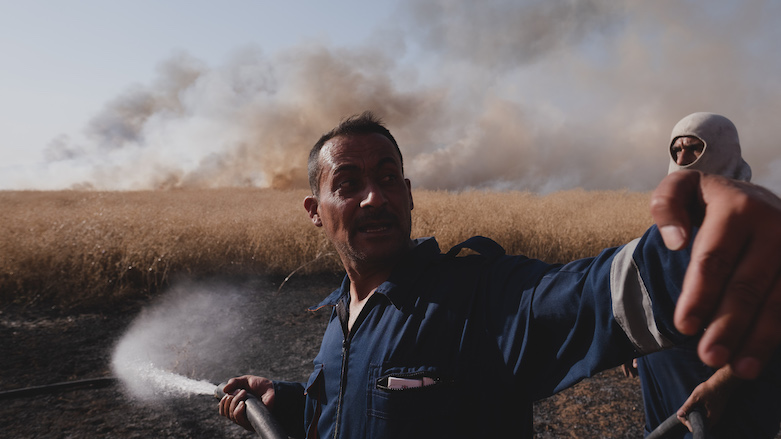Economic Genocide: The incineration of Shingal’s grain fields, grazing lands, and mass graves

Since the first week of June, the Shingal region in northern Iraq has experienced daily fires which officials and residents have described as “unprecedented” and “unlike any other year.” This has led to speculation the fires are being intentionally started for political reasons.
The origin, however, of most of the fires remains a mystery. The press officer at Mosul’s security command center suggested foreign countries were setting the fires to create an economic disaster in Iraq.
Viral photos from other areas of Nineveh governorate show magnifying glasses on metal rods that were intended to start fires but which the Iraqi Army discovered.
Many Yezidi (Ezidi) residents in Shingal have suggested so-called Islamic State sleeper cells started the fires to drive minorities out of the region.
At least some fires were lit by households and government forces to clear properties or burn trash. These spread out of control and burned for 50 kilometers from Shingal toward Tal Afar.
Natural conditions have aggravated the situation. An extraordinarily long and heavy rainy season resulted in very tall weeds that are now dry and highly combustible.
Fires can reach three meters in height with black smoke billowing into the sky. Extremely high winds carry sparks great distances through the air causing the fires to jump the roads and cross dirt barriers made by tractors in attempts to control the flames.
Fires have burned crops, fields, and mass graves around Snoni, Dugery, Zorova, and Hardan on the north of Shingal Mountain and Kocho, Hatamia, Tal Banat, Ain Gazal, Tal Qassab, Solagh, Domiz, Shingal city, Hatamia, Gir Zerik, Qatania, Siba Sheik Khuder, and Baaj on the south of the mountain. The loss of even uncultivated fields is limiting grazing land and forcing some farmers to consider selling their livestock.
The Iraqi Parliament passed emergency legislation to compensate farmers for their losses. Procedures for applying for compensation are not yet clear. However, the son of one Ezidi farmer said a government official told his father the government intends to pay outstanding debts for crops from 2014 before it compensates farmers for new losses from 2019.
Similar fires have impacted Arab and Kurdish farmers elsewhere in Iraq and Syria. However, the Shingal region is one of the final hopes for the survival of Ezidi life in Iraq. Ezidi farmers who have lost this year’s harvest might be unable to afford the hundreds and thousands of dollars needed to plant on their farms again. Without financial compensation from the government, they may be forced to abandon Shingal.
Editing by Karzan Sulaivany




















